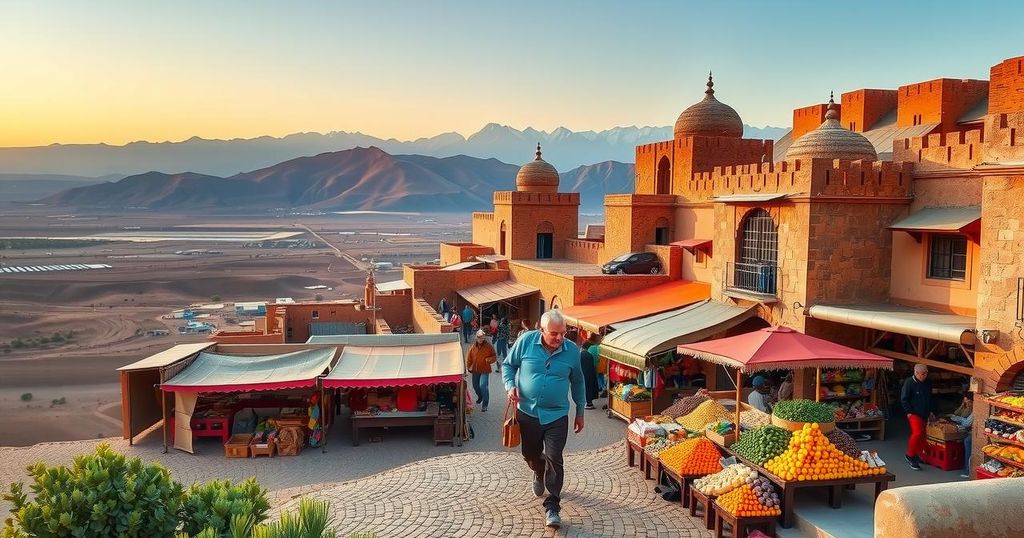Morocco leads North African countries in the 2025 Economic Freedom Index, ranking 86th globally with a score of 60.3. It improved by 3.5 points from the previous year and is considered “moderately free.” Strong business and monetary freedoms drive its economy, although challenges in labor rigidity and expensive licensing persist. Overall, reforms are needed to further enhance economic freedom.
Morocco has achieved the leading position among North African nations in the 2025 Economic Freedom Index published by the Heritage Institute. With a global rank of 86 and a score of 60.3, Morocco is placed 7th among 14 countries in the Middle East and North Africa (MENA) region, surpassing Kuwait but trailing behind Saudi Arabia. The country’s score reflects a 3.5-point improvement over the previous year, categorizing Morocco’s economy as “moderately free.”
The report evaluates various economic factors contributing to the overall score. Morocco boasts a well-structured regulatory environment with business freedom scoring 68.9 and monetary freedom at 74.7, both exceeding the global averages. However, labor freedom scored 48.5, which is below the global average. Additionally, the open market components showcase strong results, with trade freedom at 67.2 and both investment and financial freedom scoring 75.
A noteworthy aspect noted in the report is that the trade-weighted average tariff rate is 13.9 percent, and both foreign and domestic investors receive equal treatment under Moroccan law. The financial sector is competitive and expanding, presenting diverse financing alternatives, and the stock exchange allows unrestricted foreign participation.
These advancements in economic freedom are largely a result of Morocco’s reforms aimed at enhancing private-sector activity, which has, in turn, bolstered competitiveness and diversified the market’s productivity base. The report highlights the maintenance of monetary stability, accompanied by relatively low inflation rates.
Despite the positive developments reflected in the index, the report identifies ongoing challenges that necessitate deeper institutional reforms. Although the process of establishing private enterprises is more efficient, the report indicates that licensing remains an expensive barrier. Concerns about labor market rigidity were also raised, suggesting it impedes job growth and leads to the marginalization of many informal sector workers.
The Index of Economic Freedom assesses economic policies across 184 countries from July 1, 2023, to June 30, 2024. Utilizing 12 indicators within four key pillars—Rule of Law, Government Size, Regulatory Efficiency, and Open Markets—each factor is scored from 0 to 100 to derive a country’s final score.
Countries are classified into categories, where Morocco falls under the “Moderately Free” range. For reference, Mauritania, Egypt, Tunisia, and Algeria rank 119th, 145th, 149th, and 160th respectively, with some classified as “Mostly Unfree” or “Economically Repressed.” Globally, the highest rankings are held by Singapore, Switzerland, Ireland, Taiwan, and Luxembourg.
In summary, Morocco has demonstrated notable progress in economic freedom, achieving the highest rank among North African nations in the 2025 Economic Freedom Index. The country’s improvements in business and monetary freedoms have bolstered its economic landscape, though challenges regarding labor market dynamics and regulatory costs remain. Ongoing reforms to enhance private-sector dynamics are essential for sustaining this positive trajectory. The report reveals both the strengths and areas for improvement in Morocco’s economic framework, emphasizing the need for continued reform initiatives.
Original Source: www.moroccoworldnews.com






